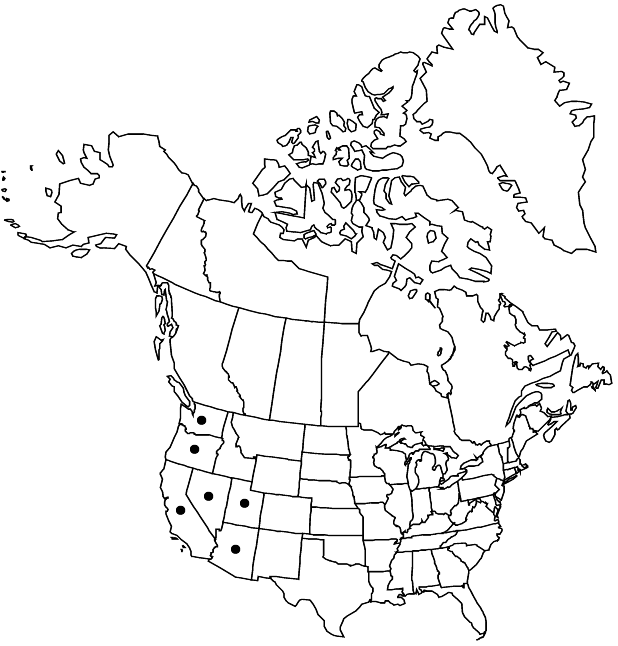Difference between revisions of "Dodecatheon alpinum"
Erythea 3: 39. 1895 ,.
FNA>Volume Importer |
imported>Volume Importer |
||
| (One intermediate revision by the same user not shown) | |||
| Line 7: | Line 7: | ||
}} | }} | ||
|common_names=Alpine shootingstar | |common_names=Alpine shootingstar | ||
| + | |special_status={{Treatment/ID/Special_status | ||
| + | |code=E | ||
| + | |label=Endemic | ||
| + | }} | ||
|basionyms={{Treatment/ID/Basionym | |basionyms={{Treatment/ID/Basionym | ||
|name=Dodecatheon meadia var. alpinum | |name=Dodecatheon meadia var. alpinum | ||
| Line 64: | Line 68: | ||
|publication title=Erythea | |publication title=Erythea | ||
|publication year= | |publication year= | ||
| − | |special status= | + | |special status=Endemic |
| − | |source xml=https:// | + | |source xml=https://bitbucket.org/aafc-mbb/fna-data-curation/src/2e0870ddd59836b60bcf96646a41e87ea5a5943a/coarse_grained_fna_xml/V8/V8_561.xml |
|genus=Dodecatheon | |genus=Dodecatheon | ||
|species=Dodecatheon alpinum | |species=Dodecatheon alpinum | ||
Latest revision as of 22:44, 5 November 2020
Plants (8–)10–35(–45) cm; scape glabrous or nearly so. Caudices not obvious at anthesis or short and compact; root whitish; bulblets absent. Leaves 2–20(–27) × (0.3–)0.5–2(–3.5) cm; petiole winged; blade linear to linear-oblanceolate, base decurrent onto stem, gradually tapering to petiole, margins entire or nearly so, surfaces glabrous. Inflorescences 1–10-flowered; bracts lanceolate, 3–10(–12) mm, usually glabrous, sometimes sparsely glandular-puberulent. Pedicels (0.5–)1–5 cm, usually glabrous, rarely sparsely glandular-pubescent. Flowers: calyx greenish and finely purple-flecked, 5–9.5(–10) mm, usually glabrous, rarely sparsely glandular-puberulent, tube 1–3(–4) mm, lobes 4, (2–)4–7(–8) mm; corolla tube yellowish with purplish red, thin, wavy ring, lobes 4, usually magenta to lavender, rarely pink or white, (6–)8–20 mm; filaments distinct, black, 0.2–0.5(–1) mm; anthers 4.5–8.5 mm, (apex truncate to obtuse); pollen sacs purple and often mottled, connective dark purple, transversely rugose; stigma enlarged, diam. usually 2+ times style. Capsules tan to light brown, often purplish toward apex, valvate, narrowly ovoid, 5–11(–12) × 3–7 mm, glabrous; walls thin, pliable. Seeds with membrane along edges. 2n = 44.
Phenology: Flowering late spring–summer.
Habitat: Moist to boggy meadows and stream banks, mainly in montane conifer woodlands
Elevation: 1900-3500 m
Distribution

Ariz., Calif., Nev., Oreg., Utah, Wash.
Discussion
Dodecatheon alpinum is found in widely scattered locations in the San Jacinto Mountains, Transverse Ranges, Sierra Nevada, northern coastal ranges, and the Siskiyou Mountains of California, southwestern Oregon, and west-central Nevada, and in the Cascade Ranges to just north of the Columbia River in Skamania and Yakima counties of Washington. It may be seen on scattered basin ranges in the Intermountain West of Nevada (e.g., East Humboldt, Jarbidge, Ruby, Snake) and western Utah (Deep Creek Mountains), and in some desert ranges of southern Oregon as far east as the Steens Mountains in Harney County; it is disjunct to the Blue and Wallowa mountains of northeastern Oregon. There are other disjunct populations in the northern Wasatch and Uinta mountains of northern and northeastern Utah, and even more widely scattered populations in the southern Wasatch and Tushar mountains. The species has also been found at Warm Springs in Millard County. Isolated populations occur on the Pine Valley Mountains, Utah, and around the Grand Canyon and Mogollon Rim areas of Arizona as far south as Greenlee County.
Narrow-leaved plants that are sparsely glandular-pubescent are sometimes found at higher elevations in the Sierra Nevada, making a distinction between Dodecatheon alpinum and D. jeffreyi occasionally arbitrary. A specimen from Deschutes County, Oregon (C. L. Hitchcock and J. S. Martin 4919, UTC, WTU) has leaf blades to 3.5 cm wide.
Selected References
None.